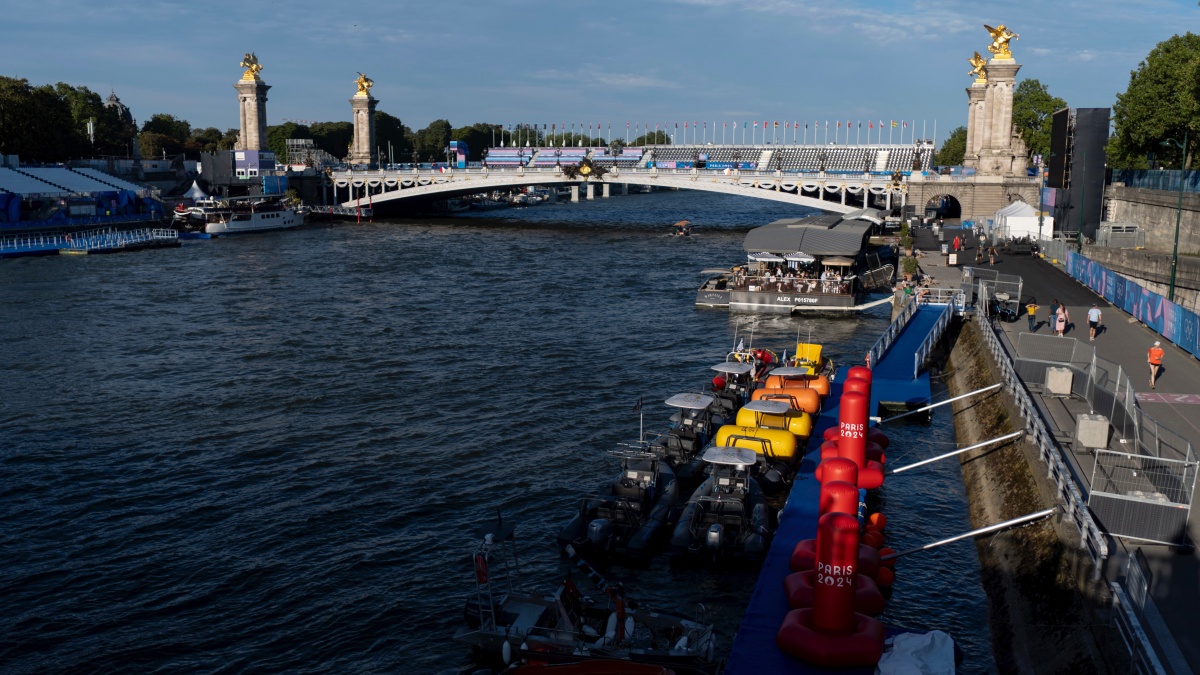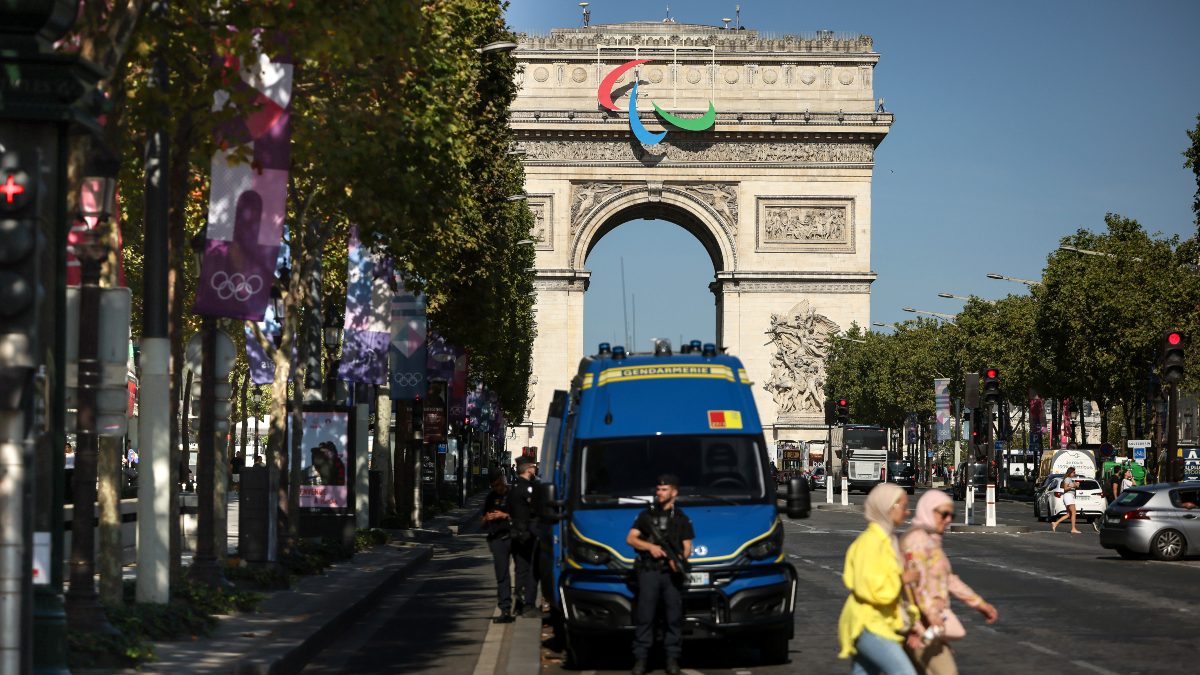Men’s triathlon race has been postponed for yet another day after river Seine failed a pollution test. Does Paris 2024 have a backup in place? read more
)
Watercraft and buoys sit along the Seine river as the triathlon event venue on the Pont Alexandre III bridge stands in the background at the 2024 Summer Olympics in Paris. AP
The men’s triathlon at the Paris Olympics was called off on Tuesday (July 30) as pollution levels in the Seine remain too high, World Triathlon said in a statement. The men’s race has been postponed to Wednesday.
Paris Olympics: News, schedule, medals tally and more
In a statement, World Triathlon said the men’s triathlon will now take place on Wednesday (July 31) at 10:45am local time. The women’s triathlon will also take place the same day at 8am. However, they will only go ahead after meeting the necessary water tests compliances.
After showing positive signs and results in the previous week, with the river suitable for swimming six days out of seven between July 17-23, the waterway has been polluted again after heavy rain storms on Friday and Saturday, which led to discharges of raw sewage.
On Monday, in a joint statement, Paris 2024 organisers and World Triathlon had said they remained “confident” that pollution would drop before the competitions start given the current bright, sunny weather which helps keep bacteria levels down. Paris is slated for a sunny and hot Tuesday with temperatures predicted to reach 35 degrees Celsius.
— World Triathlon (@worldtriathlon) July 30, 2024Christophe Calas, a weather forecaster based at the Paris 2024 organising committee, told reporters on Monday that storms were moving towards Paris from central France and could hit on Tuesday evening - which could further dampen the chances of triathlon going ahead under the renewed plans.
“There’s still a lot of uncertainty on their trajectory, their intensity. We can’t say anything for certain,” added Calas, who works for the French national forecaster Meteo France.
“If there’s a storm over Paris tomorrow night that results in significant amounts of precipitation that would have an impact on water quality in the Seine,” he added.
What are the conditions for Seine to be suitable for swimming?
Testers measure the level of two bacteria - E. coli (Escherichia coli) and Enterococcus faecalis.
E.Coli is a bacteria commonly found in the lower intestine of warm-blooded organisms. Most E.coli strains are harmless, but some can cause serious illness. Symptoms include abdominal cramps, diarrhoea, fever and vomiting.
Enterococcus faecalis is a common faecal bacteria, also often used as an indicator of water quality at swimming pools and public beaches.
According to European standards, the safe limit for E. coli is 900 colony-forming units (cfu) per 100 millilitres while the threshold for Enterococcus is 330 cfu/100ml.
What affects the water quality of the river?
According to Benjamin Raigneau, director of water quality at the Paris city hall, four main factors have an impact on water pollution.
- Rainfall. More rain more pollution runoff.
- UV index. “The higher the UV index, the faster the bacteria die,” Raigneau said.
- Temperature. The higher the temperature, the faster the bacteria dies. “Whether the temperature of the water is 16 degrees Celsius (60 degrees Fahrenheit), or above 22 Celsius (71 F) like it usually is in the summer, it makes a significant difference,” Raigneau said.
- The flow of the river. The faster the flow the higher the pollution.
How is the decision on Seine’s fitness made?
Every afternoon the day before each familiarisation session (athletes’ swim) and before each competition, a technical committee meets, bringing together all the players involved in the issue of water quality in the Seine: City of Paris, Paris 2024, the International Federation, regional authorities and Meteo France.
At the end of this technical committee meeting, an initial analysis is made of the weather conditions.
At 3:30 a.m. on the day of the competition, a final meeting is held with all those players involved.
Finally, what is the backup option?
Paris 2024 organisers have built flexibility into their schedule and have the ability to delay the races by several days.
As a last resort, they have said they would cancel the swimming leg of the triathlon and turn the race into a duathlon – with only running and cycling – while the marathon swimming could be moved to Vaires-sur-Marne, on the Marne river east of Paris, which is the venue for canoening and rowing events.
“There are contingency days planned for the summer of 2024 for both sports, which will give us some room for manoeuvre,” Paris 2024 told Reuters.
“Furthermore, the decision-making process will be more refined and precise than ever, as the Eau de Paris laboratory will be analysing the water twice a day.”
The contingency date has been kept for August 2 (Saturday), World Triathlon revealed in their statement.
(with inputs from agencies)

 1 month ago
41
1 month ago
41
)
)
)
)
)
)
)
)
)
)
)
)
)
)
)
)
)
)
)
)
)
)
)
)
)
 English (US) ·
English (US) ·